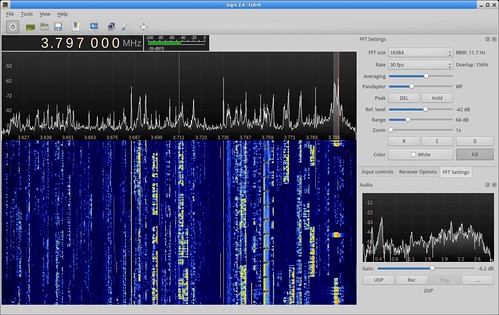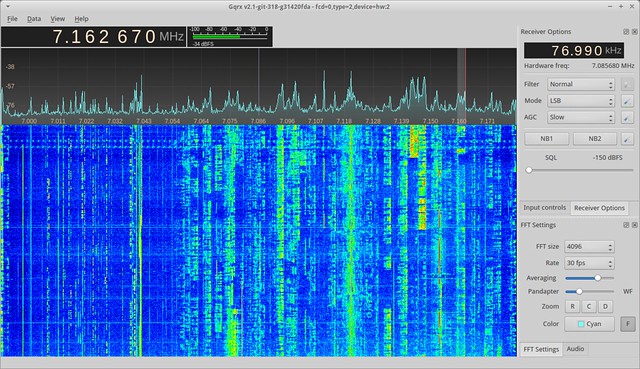Only a few weeks have passed since the gqrx 2.4 release, there has been enough development going on to justify a new release. This release includes a few new features as well as important bug-fixes.
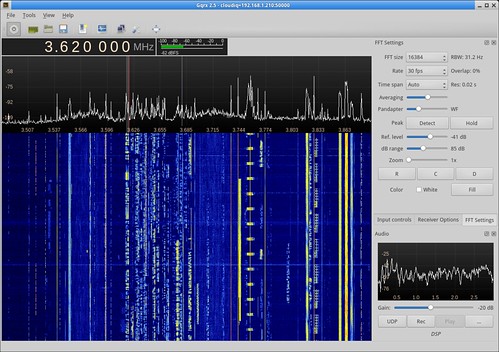
New features
- Read out signal time and frequency on the waterfall (disabled on OS X).
- Save waterfall to graphics file.
- Allow user settable waterfall time span (up to 24 hours).
- Cmake option to build using gr-audio backend (Andrea Merello).
Bug fixes
- FM stereo (revert to pre-2.4 behavior).
- Mode selector not updated when selecting a WFM OIRT bookmark.
- Show correct filter preset when filter LO/HI corresponds to one.
- Prevent RDS panel from growing by making it scrollable.
- Use correct audio backend on OS X (app bundle only).
Improvements
- Button layouts (mostly on Mac OS X).
Details about the new waterfall features
As you may have noticed, new development for this released has been mostly on the waterfall. The adjustable time span allows us capture spectrum data over longer periods and the save functionality provides a convenient way to save the captured data to a graphics file.
The image below shows an example of such capture. It is a ~20 minute capture of the transponder downlink from the FO-29 amateur radio satellite.
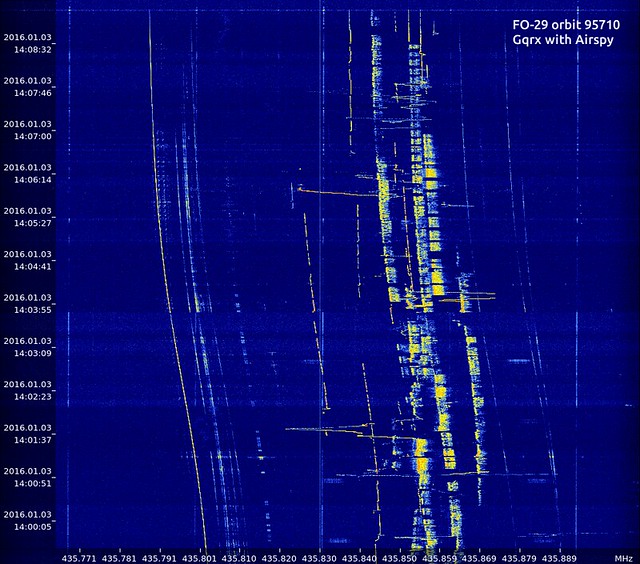
Another example for how this feature can be used is spectrum surveillance. The image below shows the 6–16 MHz HF spectrum over an 8 hour time period. It was captured using a HackRF device.
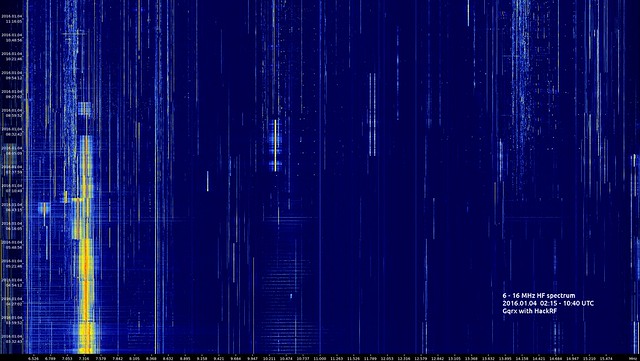
As written above, the time span can be up to 24 hours, however, this is only an arbitrary limit and we can increase it should the need arise.
Looking forward to seeing how people will use this feature.
Ubuntu Packages
Updated packages are already available in our new PPA. Instructions for new users are available on the Ubuntu Install page.
Mac OS X binaries
As always, there is an up to date Gqrx package in Macports shortly after the release. There is now also an app bundle available from GitHub or SourceForge. The bundle was built on Mac OS X El Capitan and contains all required third part libraries, as well as the command line utilities that come with the Airspy, RTL-SDR, Hackrf and Bladerf driver libraries. See the included README for details.
Installing from source
The source code can be downloaded from GitHub or SourceForge. Starting with this release, gqrx can also be compiled using cmake, see the README file for details. Building with qmake is still available and will not disappear any time soon, so feel free to use either method.
Have fun!




